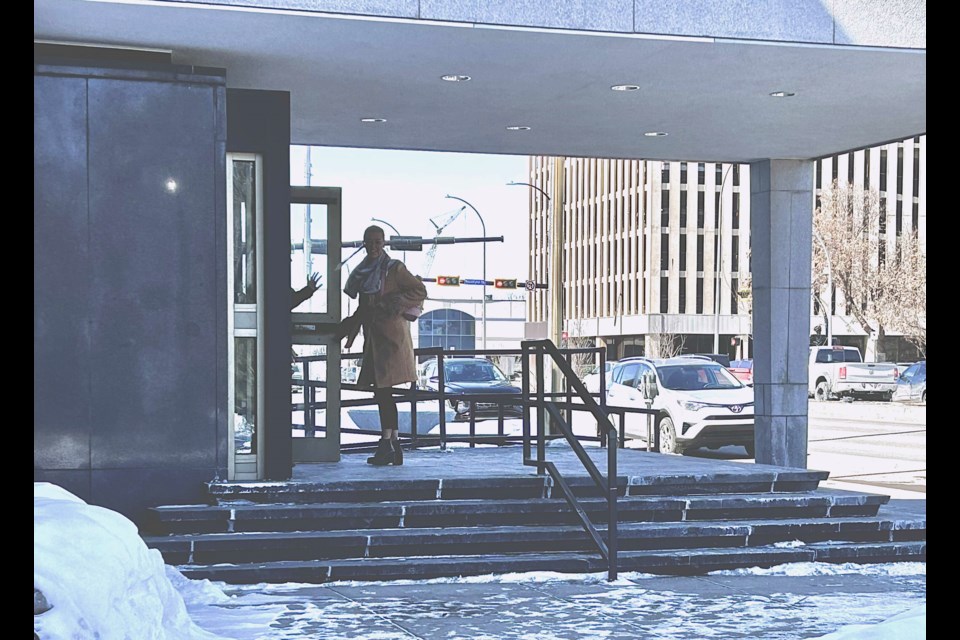REGINA – Dr. Juliet Soper appeared again in today's proceedings at Regina Court of King’s Bench.
Now in it’s third week, the trial of Chelsea Rae Whitby - accused of second-degree murder in the death of her son Emerson - saw the conclusion of Crown witnesses being called to the stand.
Whitby’s lawyer, Darren Kraushaar, was able to cross examine Dr. Juliet Soper in today’s proceedings, focussing heavily on the injuries and bruises found on Emerson’s body.
One key area were bruises sustained along Emerson’s jawline - theorized to be from sleeping on a beaded lanyard with a soother on one end, and an attachment to clothing on the other. In yesterday’s line of questioning from Crown prosecutor Aly Sparks, Dr. Soper said sleeping on the lanyard in question would not result in enough force to cause a bruise.
“It could result in some pressure marks, I wouldn’t expect laying across a beaded object like this to cause bruising,” Dr. Soper reiterated.
Kraushaar quoted a 2015 British study that including findings of sleeping on a soother may cause bruising. While Dr. Soper acknowledged the report, she continued in her belief that the lanyard could not have caused the patterned bruising on Emerson.
“You’re basing this on your clinical observations?” Kraushaar asked, to which Dr. Soper replied, “I am, from the many, many children of this age that I’ve seen who use soothers.”
Under re-examination by Sparks, the incident quoted in the study involved a pre-mobile infant, rather than a child of comparable age to Emerson.
As with yesterday’s proceedings, the in-custody Aug. 5, 2020 statement of Whitby was utilized the morning.
During the video statement with police - some seven hours in it’s entirety - interviewers searched for a possible explanation as to how Emerson sustained the multiple injuries.
“When I look at this room, there’s only a few things that can happen in this room,” said one of the officers, pointing to images posted on a wall in an interrogation room. “The way you're saying it right now … doesn’t make sense to anyone.”
Whitby vehemently maintained not knowing what could have happened.
“I did not hurt him in any way like that,” she said. “I didn’t use my hands or body parts to hurt him.”
Ultimately, the police did not gain much substantial further evidence to assist their case.
A number of intercepts by police on the cell phones of Taylor Stewart, Whitby, Riley Jolly, and Lisa Virtue plus recording devices placed in the living room and patio of Whitby and Stewart’s home were gathered. Many were gathered from June to August of 2020, for a total number of communications received numbering 5,479.
The trial continues on Friday, April 14.
— for more from Crime, Cops and Court.




